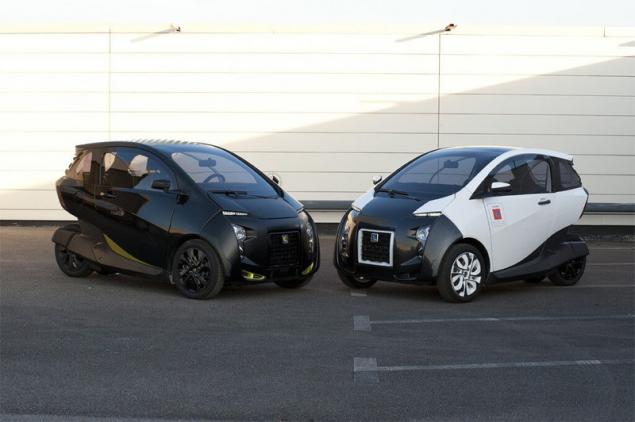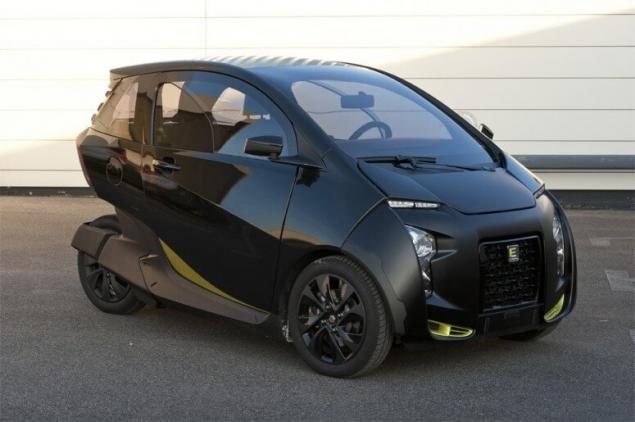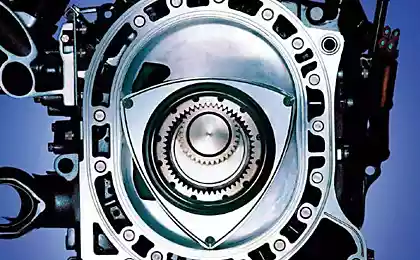576
Israeli startup creates electric vehicle with internal combustion engine-generator
The company itself has refused to name this automaker, but in this case he did not make a secret of it.
PSA Group has confirmed its participation in the project. PSA for a long time engaged in the development of hybrids with compressed air «Hybrid Air», but not so long ago gave up further works in this direction because of the absence of any support from the French government, which is aimed at stimulating sales with motor vehicles, as well as from the absence of any other manufacturer who was willing to share the investment. The electromobility same direction, the company has been stagnant for a long time. Electric cars, as "ugly duckling" long been neglected by the management of the company and therefore its development has not been conducted, and produced models, most of them were models from other companies. For example Mitsubishi i-Miev was produced and is available today under the brand Citroen. Even the new, much-touted Citroen E-Mehari only ottyuningovat Bollore Bluesummer.

Not long ago, PSA finally turned to electric and announced a strategy of «Push To Pass», where much attention is paid to hybrids and electric vehicles. Together with its Chinese partner Dongfeng begun work on the creation of a modular platform for electric E-CMP.
And now we learn of yet another project of the company, designed to compete with Toyota and Renault.
As noted in the PSA to meet the ever-lowering carbon emission limits, automakers will need to be popular and affordable vehicles that run largely on electricity. The demand for pure electric cars remains small in most markets, constrained by the limited range and the expensive batteries, even after significant government incentives.
Hybrids like Toyota Prius, which celebrates 20 years next year since the launch of the first version, combined battery and electric motors with internal combustion engine. But fuel economy is limited because of the increased weight, complexity and cost, making it of little use for mass market vehicles.
Range-extenders such as a generator on board the i3 BMW offer another compromise is only enabled when the battery is being discharged. However, their weight is quite significant.
Company Aquarius Engines states that developed her single-cylinder 600 cc valveless engine generator has only one moving part, which significantly reduces the cost of production, the weight of this development and provides more than twice the overall energy efficiency in comparison with conventional internal combustion engines, according to the modeling German engineering firm FEV.

According to the Israeli company, the first prototypes should be available in early 2017. And the price of a standard product according to preliminary estimates will be $ 17,000 for the car, which is lower than conventional hybrids, which are closer to $ 25 000.
Currently, of Renault, with alliance partner Nissan, has its own prototype of a two-stroke range extender, but with no intention to use it.
The company Toyota is working on its compact motor as a power generator.
A number of Chinese companies is also in its lineup such cars. For example Levdeo and JONWAY E
But many industry leaders believe that the addition of an internal combustion engine to electric nullifies the environmental component, but also deprives them of the right to receive green incentives.
For example Renault-Nissan is pinning its hopes for the future to improve battery performance and cost of electric vehicles, a senior vice president Arnaud Deboeuf alliance recently said:
"We are looking to expand their range, but we will do it without a range extender.
PSA Group has confirmed its participation in the project. PSA for a long time engaged in the development of hybrids with compressed air «Hybrid Air», but not so long ago gave up further works in this direction because of the absence of any support from the French government, which is aimed at stimulating sales with motor vehicles, as well as from the absence of any other manufacturer who was willing to share the investment. The electromobility same direction, the company has been stagnant for a long time. Electric cars, as "ugly duckling" long been neglected by the management of the company and therefore its development has not been conducted, and produced models, most of them were models from other companies. For example Mitsubishi i-Miev was produced and is available today under the brand Citroen. Even the new, much-touted Citroen E-Mehari only ottyuningovat Bollore Bluesummer.

Not long ago, PSA finally turned to electric and announced a strategy of «Push To Pass», where much attention is paid to hybrids and electric vehicles. Together with its Chinese partner Dongfeng begun work on the creation of a modular platform for electric E-CMP.
And now we learn of yet another project of the company, designed to compete with Toyota and Renault.
As noted in the PSA to meet the ever-lowering carbon emission limits, automakers will need to be popular and affordable vehicles that run largely on electricity. The demand for pure electric cars remains small in most markets, constrained by the limited range and the expensive batteries, even after significant government incentives.
Hybrids like Toyota Prius, which celebrates 20 years next year since the launch of the first version, combined battery and electric motors with internal combustion engine. But fuel economy is limited because of the increased weight, complexity and cost, making it of little use for mass market vehicles.
Range-extenders such as a generator on board the i3 BMW offer another compromise is only enabled when the battery is being discharged. However, their weight is quite significant.
Company Aquarius Engines states that developed her single-cylinder 600 cc valveless engine generator has only one moving part, which significantly reduces the cost of production, the weight of this development and provides more than twice the overall energy efficiency in comparison with conventional internal combustion engines, according to the modeling German engineering firm FEV.

According to the Israeli company, the first prototypes should be available in early 2017. And the price of a standard product according to preliminary estimates will be $ 17,000 for the car, which is lower than conventional hybrids, which are closer to $ 25 000.
Currently, of Renault, with alliance partner Nissan, has its own prototype of a two-stroke range extender, but with no intention to use it.
The company Toyota is working on its compact motor as a power generator.
A number of Chinese companies is also in its lineup such cars. For example Levdeo and JONWAY E
But many industry leaders believe that the addition of an internal combustion engine to electric nullifies the environmental component, but also deprives them of the right to receive green incentives.
For example Renault-Nissan is pinning its hopes for the future to improve battery performance and cost of electric vehicles, a senior vice president Arnaud Deboeuf alliance recently said:
"We are looking to expand their range, but we will do it without a range extender.
Short, but effective set of exercises to help relieve fatigue
Rose petals made solar panels more efficient
























